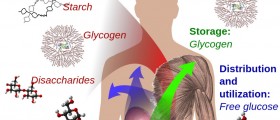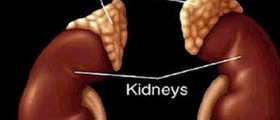
Endocrine system is an important system of glands that secretes hormones directly to the bloodstream. Hormones are required to regulate most of the body functions, including metabolic rate, functions of different types of tissue, growth, development of tissues and even mood. In other words, endocrine system influences almost every cell, organ and function in the human body.
However, more precisely, endocrine system is responsible for those processes in the body that happen slowly. For example, endocrine system works by releasing chemical messengers, hormones, which slowly transfer instructions to different parts of the body. This signaling between glands and body cells happens in two ways. First is a local signaling method where a gland releases hormones into interstitial fluids to signal a response in nearby cells.
The second method is a long distance signaling, where hormones are released into the bloodstream and then carried to the different areas of a body where a receptor cell receives a signal and acts in accordance with it.
Major glands of the endocrine system
Glands of the endocrine system release more than 20 most important hormones right into the bloodstream. The most important glands of the human endocrine system are hypothalamus, pituitary gland, thyroid gland, parathyroids, adrenal glands, pineal body, and reproductive glands – ovaries and testicles. Each of these endocrine glands releases specific hormones and stimulates or inhibits different processes in the body.
Major functions of the endocrine system
Hormones, secreted by endocrine glands, are responsible for great array of bodily processes and states. For example, hormones from one gland can send signals to other glands and trigger production of their hormones. Similarly, hormones are involved in regulation and development of various types of new cells. Hormones do not only initiate development of cells, but they also regulate the exact rate of their growth.
Endocrine system is responsible for production and secretion of estrogens, progesterone, testosterone, luteinizing hormones and follicle stimulating hormones. Therefore, this body system is involved in human reproduction and maintains proper functioning of all different reproduction phases. It is also responsible for the development of secondary sexual characteristics that help to distinguish males and females. For example, male hormones trigger growth of facial hair on males while female hormones influence growth of breasts in females.
Hormones are also responsible for regulation of metabolism. Metabolism is actually a rate at which human body uses and stores energy required for living. One of the most important hormones involved in regulation of metabolism is insulin. The pancreas secretes this hormone, and it controls the metabolism of both sugars and lipids.
















Your thoughts on this
Loading...